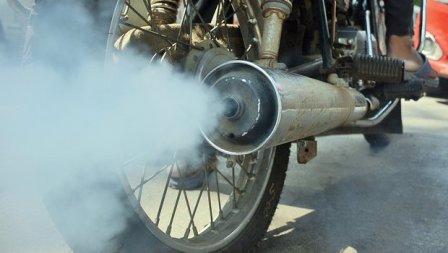Who would have thought that our Bharat Sarkar would ask motorbike manufacturers to stop making 150 cc motorcycles! Well that’s happening. Sort of! But the big shots who make the gas guzzling and environment polluting bikes are not in a mood to listen!

The Government think-tank Niti Aayog has given the ‘conventional’ two- and three-wheeler makers two weeks to come up with an action plan with concrete steps towards moving from petrol to electric vehicles . The electric vehicles have to roll out within five years. There is a 2025 deadline, say media sources.
A couple of days ago, the Niti Ayog called a meeting of the manufacturers and start-up electric vehicle (EV) makers. The industry was cautioned that if they did not take steps to address pollution issues, the courts would step in.
The meeting was attended by top officials of major two-wheeler manufacturers, including Bajaj Auto Managing Director Rajiv Bajaj, TVS Motor Co Chairman Venu Srinivasan, Honda Motorcycle and Scooter India (HMSI) President & CEO Minoru Kato along with SIAM Director-General Vishnu Mathur, and Automotive Component Manufacturers Association of India (ACMA) Director General Vinnie Mehta, among others.
Niti Aayog Vice-Chairman Rajiv Kumar and CEO Amitabh Kant represented the think-tank.
The Niti Aayog has planned transitioning to full EVs for three-wheelers by 2023 and two-wheelers with an engine capacity less than 150 cc by 2025. The official said India has already missed electronics revolution and semi-conductor revolution, therefore it should not miss the electric mobility revolution.
If established players do not do, the official further said start-ups will do. It has happened in China already.
The auto giants weren’t too pleased. The protests had started when they sniffed a change in the air.
Earlier this month, Bajaj Auto and TVS Motor Company had said any plan to ban internal combustion engine three-wheelers and two-wheelers to adopt electric ones by 2025 would be “unrealistic” and “ill-timed” and derail auto manufacturing in the country.
Likewise, two-wheeler market leader Hero MotoCorp had also said the plan to shift towards electric mobility at a time when the manufacturers are trying to upgrade their models to comply with BS-VI emission norms could have a serious impact on the industry. All these chaps are proposing for a more ‘cautious, clear and realistic roadmap’ towards adoption of EVs.
“Without a policy and road map, transition to EVs cannot happen. Policies cannot be kept fuzzy. With 14 of 15 most-polluted cities are in India, if steps are not taken up by the government and industry, then Indian court’s would step in,” a senior government official said.
The official, however, said the government does not want to thrust it upon the industry.
According to sources, there was a clear divide in the industry between conventional manufacturers such as Bajaj Auto, Hero MotoCorp, HMSI and TVS on one side and start-ups like Revolt Intellicorp, Ather Energy, Kinetic Green Energy and Power Solutions and Tork Motors on the other, who want adoption of EVs to happen faster.
“We want the conversion to EVs to happen quickly, even as early as 2023 keeping in mind pollution issues,” Revolt Intellicorp founder Rahul Sharma said.
Srinivasan and Bajaj declined to comment. Auto industry bodies SIAM and ACMA also ‘advised’ the government to follow a well laid-out roadmap and a practical time frame for the roll-out of EVs in the country. Industry chamber CII also said the government should carry out wider consultations before finalisation of goals and timelines for electric mobility.

